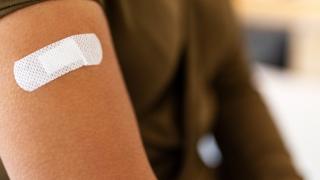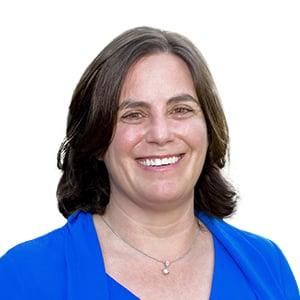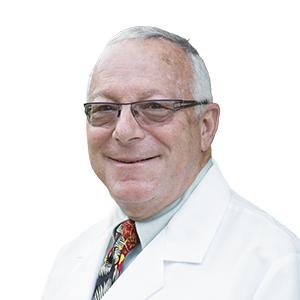A year ago, we sought advice for cancer patients, survivors and caregivers on coping with the risks from the COVID-19 pandemic from Sanjeet Dadwal, M.D., chief of City of Hope's Division of Infectious Diseases. Since then, doctors and scientists have learned much about this highly contagious disease.
We will still battle the COVID-19 pandemic well into 2021 — and likely beyond. So we've asked City of Hope’s Jana Dickter, M.D., associate clinical professor in the Department of Medicine, Division of Infectious Diseases, and Cary Presant, M.D., an oncologist and hematologist, to update us on what is now known about how the coronavirus impacts cancer patients and survivors, as well as on the precautions that remain necessary for all of us to protect our health in the year ahead. Top of mind for many cancer patients: questions about the new COVID-19 vaccines.
Should cancer patients and survivors get the COVID-19 vaccine as soon as they can?
Presant: Patients should get the vaccine to prevent the likelihood of severe COVID-19 disease and long-term COVID-related symptoms. We know that having long-term effects from the virus is more common in elderly patients, in patients who've had chemotherapy and in patients who've had severe illness. Additionally, by preventing infection, cancer patients can avoid interruption of much-needed treatments. So, we encourage our patients — and caregivers — to get the vaccine as soon as it becomes available to them.
Dickter: In December 2020, the American Society of Clinical Oncology and the Infectious Diseases Society of America held a "COVID-19 Vaccine & Patients with Cancer" webinar to discuss COVID-19 vaccination for cancer patients. The general recommendation is that cancer patients and cancer survivors be offered the vaccine if there is no specific contraindication.
However, the panel recognized that some immunocompromised patients may not have an adequate immunologic response to the vaccine. These vaccines have not been tested adequately in patients with active cancer or those who have undergone stem cell transplantation or CAR T cell therapy. In these patients, we do not know how effective vaccine will be. Therefore, even after vaccination, we recommend that patients continue to wear masks, practice social distancing and perform hand hygiene.
The National Comprehensive Cancer Network (NCCN) has similar recommendations regarding vaccination for cancer patients. They advise patients undergoing hematopoietic stem cell transplantation or CAR T cell therapy wait to get vaccinated for at least three months after treatment to improve vaccine efficacy. Currently there is no data that demonstrates patients immunized at any point post-transplantation or CAR T cell therapy will develop an adequate immune response against COVID-19.
For patients treated with immune checkpoint inhibitors, the safety and effectiveness of COVID-19 vaccination is an unanswered question, as these therapies stimulate immune function. Currently, experts recommend vaccination when it is made available to these patients, and believe that the benefits outweigh the risks.
Immune-deficient patients are more susceptible to infections, at risk for repeated infections and more likely to have severe complications from coronavirus infection. Immune-deficient patients should make sure their caregivers and family members are protected from COVID-19 infection. And the best way for family members and caregivers to protect themselves and their loved ones with cancer is to get vaccinated, continue wearing masks, practice social distancing and perform hand hygiene — even after the patient is vaccinated. While COVID-19 vaccines do not entirely eliminate the risk of potentially transmitting the virus to others, preliminary evidence suggest that some vaccines may decrease the risk.
Additionally, in households with multiple family members, mask wearing within the home when around others can help prevent the spread of COVID-19 to vulnerable family members.
We know that cancer patients have a higher risk of complications due to COVID-19. Has more information about that come to light?
Presant: We've learned that some patients who are particularly immune-suppressed who contract Covid — such as those who have active leukemia or lymphoma or who have had a bone marrow transplant or CAR T cell therapy and are on immunosuppressive therapy — may continue to shed the virus for a prolonged period of time, up to a few months. Such individuals are contagious for their families, friends and anyone who comes in contact with them.
Therefore, they have to take special, extended precautions, even after they are no longer ill with Covid. These measures include wearing a mask, staying six feet apart and avoiding contact with others, if possible.
Dickter: [We’ve also learned that] other risk factors for severe Covid infection and/or death include a diagnosis of lung cancer, neutropenia, lymphopenia, a more advanced cancer diagnosis, and recent treatment with anti-cancer medications.
Have other complications for cancer patients been discovered?
Presant: Yes. We've come to realize that many patients who've had Covid, probably about a third, can have prolonged periods of fatigue, shortness of breath, difficulty with memory (“brain fog”) — just not feel themselves. Patients who have had cancer often have an added symptom burden. In other words, if they have a little fatigue to begin with from their cancer treatments, they're particularly susceptible to lingering Covid symptoms impacting them for longer periods of time.
Dickter: Cancer screening and treatment declined in 2020 due to the COVID-19 pandemic. Consequences for this could be delayed diagnosis, which may have a direct effect on treatment outcomes.
We’ve also learned that patients with both cancer and COVID-19 have a higher risk of clot formation. A recent study showed that hospitalized patients with cancer and COVID-19 are at higher risk of developing clots affecting the veins, especially in the lungs, a condition known as pulmonary embolism. Treatment with anti-coagulant/anti-platelet therapy may reduce the risk.
What about visiting the hospital for treatments or follow-up visits?
Presant: If patients are having chemotherapy or other treatments, they need to continue their therapy because chemotherapy is really important to keep cancer in remission. In early stages of the disease, it's very important to use chemo, radiation and surgery to cure the disease. You don't want to miss treatments and wind up having the cancer come back.
City of Hope mostly treats cancer patients and has few coronavirus patients, so it is a very safe place to receive care. In addition, because our entire patient population is immunocompromised, we have extensive experience in infection control and have instituted broad new measures to keep patients and staff safe. These include screening of all patients and staff, a limited visitor policy and enhanced cleaning protocols. As a result, we have had no instances of in-hospital transmission of Covid infection from a patient to staff, staff to patient or patient to patient during this entire pandemic.
Is delaying some cancer treatments an option for some?
Presant: That's an individual discussion a patient may want to have with their doctor by asking, "Is there another way, so that I don't have to come in all the time now, because of Covid? Is this actually necessary?" If it's necessary, by all means, do it. In every disease area doctors are developing practice patterns that identify which patients may delay the treatments that require visiting health care facilities.
Dickter: I agree. Treatment should be determined based on individual cases and circumstances. All patients should discuss with their doctor the risks and benefits of initiating versus delaying care.
What about having cancer screening tests?
Presant: Patients shouldn't put that off. We've seen a lower frequency of mammograms and colonoscopies being done, for example, and therefore people are at risk of having cancer and having it begin to spread. We're seeing an increased number of late-stage patients showing up because they missed screening tests. So we want to remind people that if due for an important screening, they should get that screening done.
Dickter: I echo my colleague’s statement. I’d like to reemphasize that at City of Hope, we have taken all of the steps necessary to ensure a safe environment, whether it is outpatient clinics or inpatient care.


